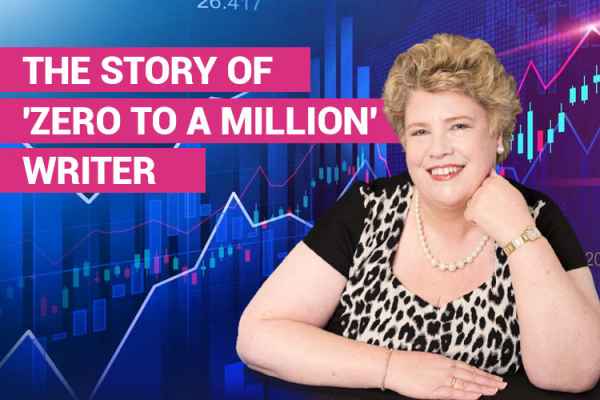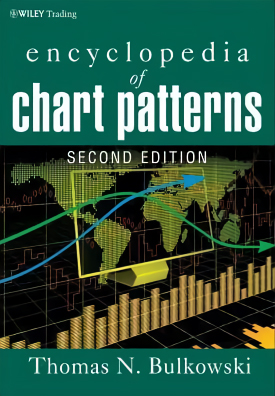India's financial market is evolving rather quickly in recent years, opening huge opportunities for new traders and beginners. Here are the stories of the most inspiring and successful traders in India.

India is known as one of the fastest developing countries in the world and is often considered a newly industrialized nation. With an overall GDP of $2,623 billion, India remains an impressively wealthy country (currently ranked seventh globally) that continues to grow rapidly. Indians for long have considered online trading a high-risk investment, so many of them chose to stay away from it. They tended to choose saving options like bank deposits and small savings instruments, which offered stable and low-risk gains.
But as technology made changes in the country, investing in stock markets has become significantly popular, mostly driven by the Indian younger generations. According to the National Stock Exchange data, there has been a recent leap in retail investor interest in equity, with nearly 14.3 million new investors added by the NSDL and CDSL in March 2021. The number is expected to remain robust over the next few years. The giant investment firm Goldman Sachs even predicted that India's stock market could grow to more than $5 trillion within three years.
Even so, it's worth noting that the current Indian stock market is not only filled with beginners. Many successful Indian traders have made millions from their trades and are not hesitant to tell their experience. As a trader, it's always helpful to learn from the journey of others; see what principles they use, what mistakes they made, and how they overcome them. In this article, we're going to reveal the stories of the top 7 successful traders in India.
Contents
1. Kirubakaran Rajendran
Have you ever thought that someone who finishes work at 10 a.m can earn billions? Meet Kirubakaran Rajendran from Chennai, who invented Trading Bots – an automated program that trades using a set of trading rules – to do his trading. He is known to have a dreamy lifestyle where he spends most of his time reading books, watching TV series, and going to the gym. He goes out to meet his friends on Fridays and occasionally takes about 2-3 road trips with family and friends in a year. However, people may not know that such a lifestyle is actually the result of years worth of back-breaking work and expensive lessons learned.
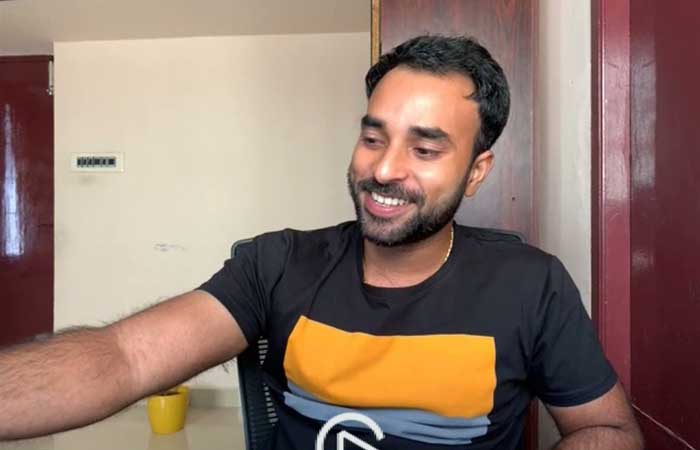
Kirubakaran actually comes from a middle-class family in Chennai. His father, a government office clerk, and his mother, a tailor, had a tough time providing basic education for him. Once graduated, he joined Loyola College for a course in Statistics. After reading about the market a bit, he decided to enter the market in 2008 and ended up losing his money in less than a month due to the lower circuit in the market. He then tried entering the market again when he was accepted as an Infosys employee with a monthly salary of Rs. 15,000.
Since he was tasked with a routine job, Kirubakaran decided to save time by automating the work so he could spend more time reading and researching markets. He started to gain some money from trading, especially after he decided to move from news-based to rule-based one. Combining these factors, he became one of the five most successful traders in India. To be successful, he suggests not only considering the potential profit from a strategy but also the potential loss. In other words, it's better to pick strategies with lower risks.
See Also:
2. Naresh Nambisan
In contrast to Kirubakaran, Naresh Nambisan is more of an old-school trader because he prefers to use manual effort rather than automatic trading. Naresh is a dedicated trader who loves charts, which he could stare at for hours without getting bored. He started his trading journey when he was still working in the Gulf. He worked there for six years before finally returning to India, only to find that getting a job in the country was far from easy. During this period, he contacted some of his friends, and one of them was a technical analyst. Since then, he got intrigued and started to learn more about technical analysis.
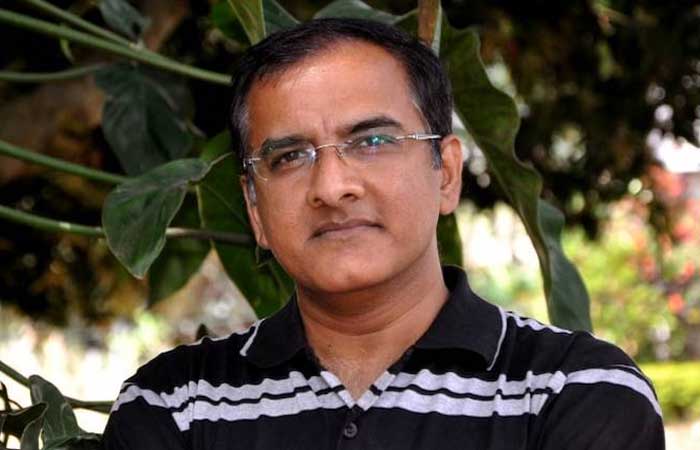
Naresh stated in one of his interviews that he was having a hard time emotionally during this period because he lost quite a lot of money, especially since the capital was funded by his wife's salary. But he managed to accept the failure and learn from it. There are two main types of strategy that he uses, namely short-term trades and investments. He does not leverage much and normally only has three positions open to hold the trade a little longer.
Naresh suggests beginners keep the charts and indicators simple. He recommends testing the indicators yourself, seeing how it works, and correcting them before moving on to the next one. But above all, he believes that it's best to use your unique strategies rather than blindly following tips from others.
See Also:
3. Tasneem Mithaiwala
The next success story comes from a single mother of two daughters, Tasneem Mithaiwala. For someone who graduated from an art school and was uncomfortable with anything to do with numbers, Tasneem did a great job of becoming a trader for a living. Initially, she entered the market because her cousin, who used to trade in the equity market, recommended it to her. She started off with a capital of Rs. 5 lakh but ended up getting only Rs. 1.75 lakh after eight months.
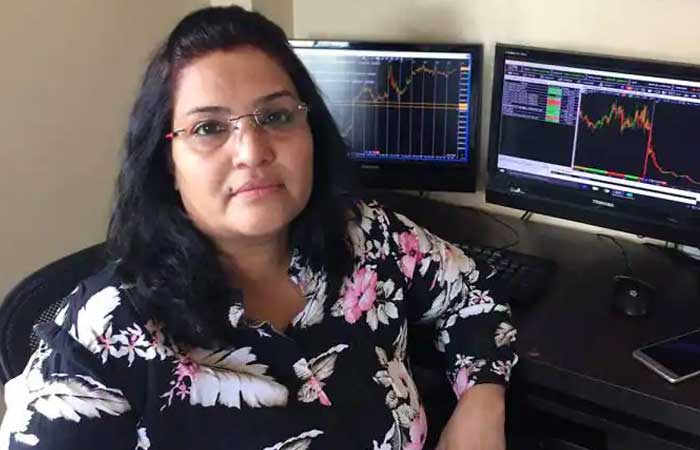
Not wanting to experience the same thing twice, she decided to start building financial knowledge by joining a course offered by FinLearn Academy. She began learning about the basics, technical analysis, and market strategy. She gradually became better and better at trading. Now she's known as one of the most successful female traders in India. She believes that trading requires many skills that women tend to be good at, such as money management, discipline, and mental strength.
4. Abhinand Basavaraj
Abhinand is a great example of share traders who start, fail, learn, and improve with every trade. At the age of 19, he began his trading journey by borrowing money from his father to open a Demat account. Like most retail traders at that time, he started off with frontline stocks such as Reliance Industries and HDFC. But without a proper strategy, he often found himself getting many losses. However, he didn't give up easily and kept going until he succeeded.

Looking back at his failures, Abhinand decided to move from trading stocks to options. During his comeback, he began learning about technical analysis and built his strategy from it. To sustain his trading activities, he had borrowed money from his family and others. He carried the debt for a few years before he was finally able to pay them back.
After making a number of winning streaks, he became more confident with his trading skill, but he admitted that he still makes mistakes here and there. In the end, he believes that the most important thing in trading is to discover yourself. The best way to achieve it is to have a proper strategy, a good risk management system, and prepare yourself psychologically.
5. Rakesh Jhunjhunwala
Rakesh Jhunjhunwala, often known as "The Big Bull", is one of India's most successful stock traders. Once he completed his degree as a Chartered Accountant, Rakesh entered the market with only Rs. 5,000. Today his net worth is about Rs. 30,300 crores.
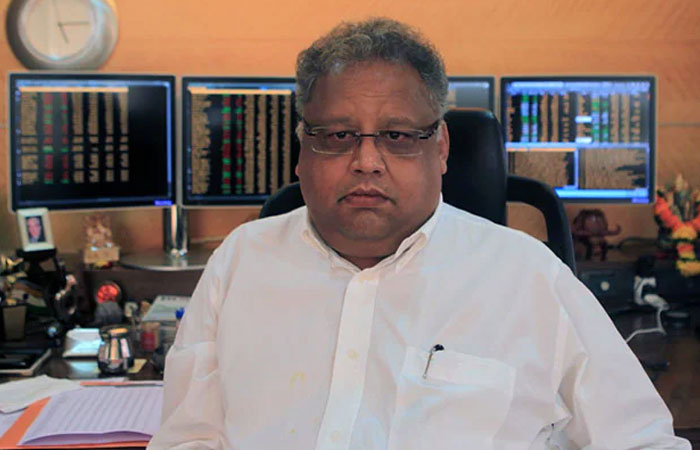
These days, he manages his privately owned asset management firm "RARE Enterprises". Looking at his journey, he essentially has an excellent Risk and Reward ability. Other than that, his imagination and wisdom also stood out in his trading performances. Seeing the rapid growth of the Indian stock market and economy in general, he believes that investing in the market is a smart idea.
6. Radhakishan Damani (RK Damani)
Radhakishan Damani, or "Mr. White and White", is the owner of D-Mart and probably the richest stock trader in India. He's also the mentor of Rakesh Jhunjhunwala. RK Damani has always been known for his low profile, so he rarely appears on television and press conferences.
RK Damani offers a rather inspiring story of success. He started his trading journey in ball-bearing with no intention of entering the stock market. But when he was 32, after his father's death, he was forced to close down his business and had to join his sibling in the family stockbroking business, which was inherited from their father.
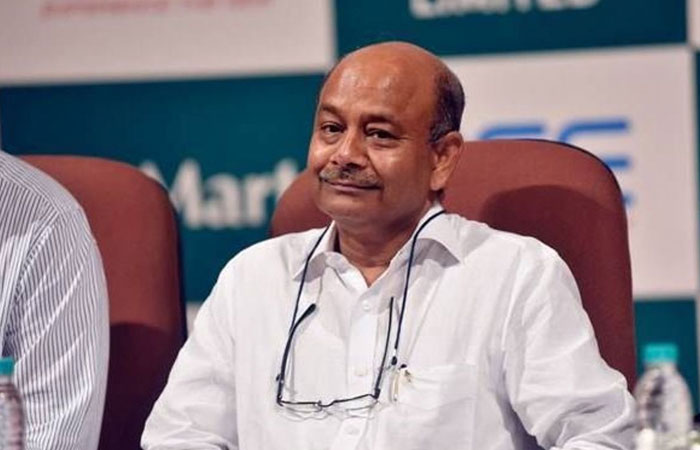
At first, he had no idea how stock trading works, so he made many mistakes and lost money in the process. However, he soon understood that in order to be successful, he had to improve his skill and learn from those mistakes. Gradually, he began making better predictions and managed to become one of the greatest investors in the market within a couple of years. His principle is actually rather simple. He believes that investing in the right company will bring good fortune in the future, so make sure to pick the right company with promising prospects.
7. Ramesh Damani
Ramesh Damani is an investment guru who is also one of the most successful stock traders in the market. He started trading in 1990 when Sensex was 600 points. He was a member of the Bombay Stock Exchange (BSE) back in 1989 and initially thought that he was going to pursue his career as a stockbroker, but then decided to become a stock trader after winning some trades.
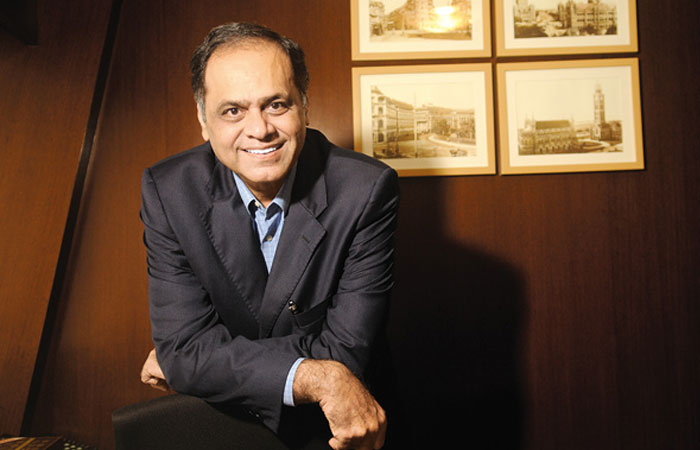
The first famous investment that Ramesh made was the "Infosys". Coming from a tech background in the US, he understood well that the investment would be huge. So when Infosys became public in 1993, he immediately invested Rs. 10 lakhs in it. Six years later, the investment has given him returns of more than 100 times.
Inspiring as he is, Ramesh believes that everyone should make a clear exit strategy before investing in an unpredictable market. He strongly believes that if you have researched the stock carefully, studied and arranged a good trading strategy, then there's a high chance that you will make good fortunes in the market.
Final Thoughts
Emerging markets like India hold a promise of massive future growth. Though the craze has just started recently, the chance to be successful has always been present. Looking at the success stories above, we can see that there's an excellent opportunity for Indian traders, especially the younger generation, to step in and try trading in the market. We've learned from these success stories that nothing comes easy, so make sure to prepare yourself before trading by studying the basics, sharpening your skill with practice, and maintaining discipline.
Apart from that, choosing the right broker can be detrimental so one needs to pick it carefully. There is a number of recommended brokers for Indian traders, one of which is HF Markets since the broker is known for its friendly conditions towards beginners.
HF Markets is an award-winning forex and commodities broker. Established since 2010, the company provides trading services and facilities to both retail and institutional clients. For more than 9 years in business, HF Markets has around 1,500,000 live accounts opened and 200 employees globally.
Based on its services, HF Markets can be regarded as middle-class category. Clients do not need to prepare a big deposit for joining to trade with this broker. Also, there are various account types, trading software, and tools to facilitate individuals and institutional customers to trade forex and CFD online.
HF Markets is a registered brand name of HF Markets (Europe). Based on the location, the company is regulated by various financial regulators. Here are the details:
- HF Markets (SV) Ltd, registered in St. Vincent & the Grenadine as an International Business Company with the registration number 22747 IBC 2015.
- HF Markets (Europe), authorized and regulated by the Cyprus Securities and Exchange Commission (CySEC) with Licence Number 183/12.
- HF Markets SA (PTY), is authorized and regulated as a Financial Service Provider (FSP) by the Financial Sector Conduct Authority (FSCA) in South Africa, under license number 46632.
- HF Markets (Seychelles), incorporated under the laws of the Republic of Seychelles with registration number 8419176-1, regulated by the Seychelles Financial Services Authority (FSA) under Securities Dealer Licence number SD015.
- HF Markets (DIFC) Ltd, authorized and regulated by the Dubai Financial Services Authority (DFSA) under license number F004885.
- HF Markets (UK) Ltd, authorized and regulated by the Financial Conduct Authority (FCA) under firm reference number 801701.
If traders have more experienced, knowledgeable, and sophisticated trading environment, they can join to become Professional Clients, who can manage and assess their own risks. For that reason, these kinds of clients are granted access to more favorable rates but afforded lesser regulatory protections than retail clients.
Trading with HF Markets can enable traders to access a variety of trading instruments like CFDs on Forex, Cryptocurrencies, spot metals (gold, silver, and others), energies (oil and gas), commodities (such as coffee, copper, and sugar), indices, bonds, and popular shares such as Google, Apple, and Facebook.
HF Markets offers some of the tightest spreads in the market, starting from 0 pips in Zero Account. This broker quote major foreign exchange currency pairs to five decimal places. Therefore, traders have the opportunity to get more accurate pricing and the best possible spreads.
HF Markets receives numerous highly prestigious titles, including the huge honor of being ed to join the ranks of the World Finance Top 100 Global Companies. Others are Best Client Funds Security Global by Global Brands Magazine, Best Global Forex Copy Trading Platform by Global Forex Awards 2019, Fastest Growing Forex Broker Mena 2019 by International Business Magazine, and many more.
After opening an account in HF Markets, traders will obtain various forex trading platforms to accommodate all of their trading demands. Whether traders like to trade on desktop or prefer to trade on-the-go, they can use MetaTrader 4 on desktop (terminal, multi-terminal, and web terminal) and phone (iPhone, iPad, and Android).
Clients' funds are held in segregated accounts. Only major banks are used by Markets because they believe that successful traders have to give their full attention to their trading rather than worrying about the safety of their funds.
Traders do not need to worry about transaction fees when depositing and withdrawing. Transaction fees are not charged, and diversity of payment methods enable them to choose between Wire Transfer, Bank Card, and online payments (Neteller, iDeal, Sofort Banking, and Skrill). HF Markets ensures that traders make fast transactions 24/5 during the standard hours.
Traders can earn extra income by joining the affiliate program offered by Markets. Clients who join this program will get some advantages, such as 60% of Net Spreads based on the volume traded by sub-clients, up to $15 per a lot of net revenue, and many more. More information about HF Markets can be obtained on their official website which is supported in 27 languages.
From the review above, it can be concluded that HF Markets is one of the award-winning forex and commodities brokers. There are various account types traders can choose in HF Markets, and the broker itself becomes a favorite among traders for its low spreads. This condition is very suitable for traders with limited funds and a desire to get more opportunities to gain maximum profit.
One of the most lucrative markets in Asia apart from India is Indonesia, an emerging country with one of the highest populations in the world. Interestingly, traders from Indonesia usually prefer to take any trading information only in their language.

 Dedicated FREE FOREX VPS
Dedicated FREE FOREX VPS Free FOREX Virtual Private Server
Free FOREX Virtual Private Server MT4 Demo Contest, Get $500
MT4 Demo Contest, Get $500 Sign Up for an Account, Claim 60% Deposit Bonus
Sign Up for an Account, Claim 60% Deposit Bonus Free MT4/MT5 VPS 2024
Free MT4/MT5 VPS 2024 Send E-mail and Get Free Merchandise
Send E-mail and Get Free Merchandise $1K Refer a Friend Bonus for Pepperstone Pro clients
$1K Refer a Friend Bonus for Pepperstone Pro clients Maximize Your Earnings with 100% Deposit bonus
Maximize Your Earnings with 100% Deposit bonus Trade to Win, $5,000 Monthly Demo Contest
Trade to Win, $5,000 Monthly Demo Contest Claim 30% + 15% Deposit Bonus from LiteFinance
Claim 30% + 15% Deposit Bonus from LiteFinance



